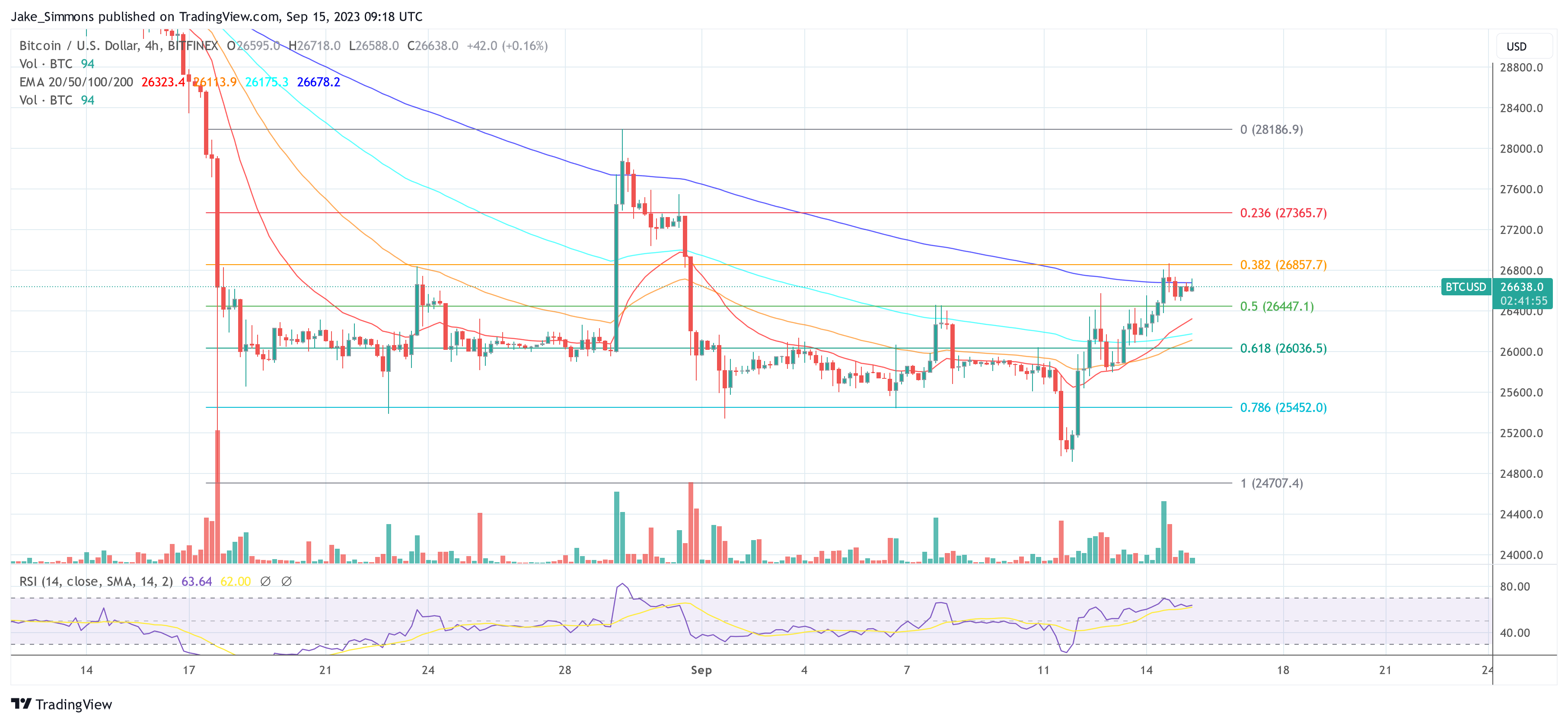In a resolution to one of the most talked-about blunders in recent history, F2Pool, a prominent Bitcoin mining pool, has opted to return the inadvertently overpaid network fee of 19.82108632 BTC to Paxos, the stablecoin issuer and crypto brokerage firm. The disclosure came a few ago from a tweet by Mempool, a Bitcoin explorer, stating, “F2Pool have sent the 19.82108632 BTC fee overpayment back to Paxos.”
The Largest Bitcoin Fee Ever Paid
On September 10, 2023, Paxos, a company well-known for issuing stablecoins like PayPal USD and Pax Dollar (USDP), conducted a Bitcoin transaction that became infamous overnight for its disproportionately large network fee. The transaction involved a mere 0.07 BTC, roughly valued under $2,000 at the time, yet had an astonishing fee of nearly 20 BTC—translating to over $515,000.
Blockchain analytics first indicated that the sender had paid fees that were exponentially higher than what is generally required. Jameson Lopp, co-founder of Casa wallet, noted that the account in question “looks like an exchange or payment processor with buggy software,” considering it had processed over 60,000 transactions from the same address.
Initially, speculative eyes turned towards PayPal, largely because of the identified behavior of the wallet involved. Blockchain enthusiasts observed that the sending account, designated as “bc1qr35….”, displayed transactional characteristics matching those of a previously inactive wallet labeled as belonging to PayPal. The speculation was further fueled by the fact that an intermediate account had transferred 18.5 BTC from the old PayPal-labeled account to the new sending address.
However, Paxos cleared the air on September 13 with a statement: “Paxos overpaid the BTC network fee on Sept. 10, 2023. This only impacted Paxos corporate operations. Paxos clients and end users have not been affected and all customer funds are safe. This was due to a bug on a single transfer and it has been fixed. Paxos is in contact with the miner to recoup the funds.”
F2Pool’s Decision And Community Backlash
The Bitcoin block containing the transaction was mined and confirmed by F2Pool. The pool’s management had initially offered to return the mistakenly high fee if claimed within three days. The decision to actually return the funds has, however, sparked a barrage of criticisms within the Bitcoin community.
Prominent voices like Richard “Dick” Whitman remarked, “Guess if you are on F2Pool it’s time to switch LOL”, while others expressed concerns saying, “Bad precedent” and “wow, if I was a miner in that pool I’d be pissed.” Pledditor, a well-known figure in the Bitcoin realm, humorously commented, “Imagine contributing hash to a pool that actively gives your rewards away LOLOLOLOLOL.”
While the fee error from Paxos stands out for its sheer size, it’s not an isolated incident in the crypto space. Previous occurrences include an Ethereum user losing over $300,000 in 2019 due to a similar mistake, though 50% of the lost funds were returned by the mining pool involved. In 2020, another Ethereum user paid a staggering $9,500 for a $120 trade.
F2Pool’s decision to return the exorbitant fee opens a conversation about the ethics and governance frameworks that mining pools should perhaps adhere to. It also serves as a stark reminder for all actors in the crypto space about the necessity for meticulous attention to detail, especially in a realm where one wrong click can result in monumental financial loss.
At press time, BTC traded at $26,638.









